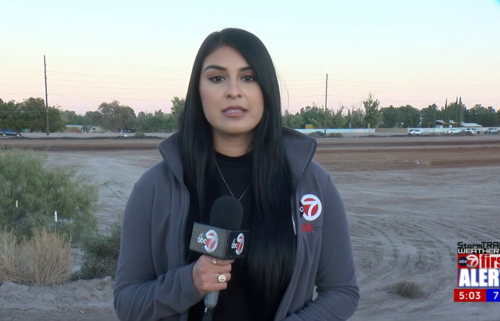Deputy defense secretary was not told Austin had been hospitalized when she assumed his duties
CNN
By Natasha Bertrand, Oren Liebermann, Haley Britzky and Kevin Liptak, CNN
(CNN) — When the deputy secretary of defense began assuming some of Secretary of Defense Lloyd Austin’s responsibilities on January 2, not even she knew that it was because Austin was hospitalized, two defense officials told CNN.
Deputy Secretary of Defense Kathleen Hicks, the Pentagon’s No. 2 leader, was among the senior leaders kept in the dark about Austin’s true whereabouts until Thursday, three days after the secretary checked into Walter Reed National Military Medical Center following complications from an elective surgery. Not even the president was aware of Austin’s hospitalization until three days into his stay there, CNN previously reported.
The revelation that not even Hicks knew that Austin was hospitalized is sure to add to questions swirling within the administration about why his status was kept secret, not only from the public but from senior national security officials and the White House.
Austin was hospitalized following an elective medical procedure he had on December 22, while he was on leave, Maj. Gen. Pat Ryder, the Pentagon press secretary, said. He returned home the following day, but on the evening of January 1 he “began experiencing severe pain” and was transported to Walter Reed via ambulance.
“He was placed in the hospital’s intensive care unit to ensure immediate access to due to his medical needs, but then remained in that location in part due to hospital space considerations and privacy,” Ryder said.
The chairman of the joint chiefs of staff, Gen. C.Q. Brown, was notified January 2 that Austin had been hospitalized the day before, Ryder told CNN. But he is not in the chain of command. The military service secretaries, who are in the chain of command, were not notified until January 5, four days after Austin checked into the hospital.
Ryder said that Austin’s chief of staff, Kelly Magsamen, was “unable to make notifications before then” due to illness.
“She made those notifications on Thursday to the deputy secretary and national security adviser,” Ryder said. He declined to answer follow-up questions about why none of Austin’s other aides could notify the White House or his deputy of his hospitalization sooner.
Secretary of State Antony Blinken said Sunday he had not been aware that Austin had been hospitalized. The two spoke the weekend before Austin was hospitalized on New Year’s Day, Blinken said at a news conference in Qatar, but he declined to engage in “hypotheticals” when asked what his own notification policy would be if he were hospitalized. Blinken called Austin an “extraordinary leader” and wished him a full recovery.
Ryder told CNN on Sunday that Austin transferred “certain operational responsibilities that require constant secure communications capabilities” to Hicks on January 2, the day after he was admitted to Walter Reed. Throughout last week, Hicks made “some routine operational and management decisions” for the Pentagon and was authorized to support the president.
But Hicks, who was on vacation in Puerto Rico at the time, was not informed of Austin’s hospitalization until the afternoon of January 4, the defense officials said. Ryder told CNN that it is “not uncommon” for the secretary to transfer certain responsibilities without providing a specific reason.
At that point, Hicks began to make contingency plans to return to Washington, DC, on Friday, the official said. But because Austin was expected to return to his full duties — albeit from the hospital — on Friday, she decided to stay in Puerto Rico to ensure continuity of communications.
“There are all of these people around the secretary at all times, who manage him and help him on a day-to-day basis, and no one had the wherewithal to even tell the White House?” said one Pentagon official. “I’m surprised no one is using the word ‘cover-up’ yet.”
Reps. Mike Rogers and Adam Smith, the chair and ranking member of the House Armed Services Committee, respectively, released a statement Sunday saying they are “concerned” about “how the disclosure” of Austin’s hospitalization was handled.
“Several questions remain unanswered including what the medical procedure and resulting complications were, what the Secretary’s current health status is, how and when the delegation of the Secretary’s responsibilities were made, and the reason for the delay in notification to the President and Congress,” they said in a statement released Sunday.
Rogers and Smith added the defense secretary “must provide additional details … as soon as possible.”
Ryder told CNN on Sunday that Austin “has no plans to resign” over the episode, which has left many Pentagon officials deeply frustrated and questioning why they were kept in the dark. The White House insists that President Joe Biden — who did not learn that Austin was hospitalized until three days after the secretary checked into Walter Reed on January 1 — still has full confidence in Austin. The two had a “cordial” conversation on Saturday evening, the White House said, in which Biden told Austin he looked forward to having him back at work.
Asked whether the department’s lawyers will examine whether the Pentagon violated any statutory requirements regarding the reporting of vacancies, Ryder said the agency is “considering the impact of any statutory reporting requirements and will provide updates as appropriate.”
‘Public relations 101’
Senior White House officials said Sunday that the nature of Austin’s medical condition was still a mystery to many senior aides at the White House, but added it was unlikely the situation would impact Biden’s favorable view of his defense secretary.
Officials couldn’t recall any previous disputes between the men and said the president respects Austin’s professionalism. Austin also had a personal friendship with Biden’s late son Beau; the two regularly attended Catholic Mass together when they were both deployed in Iraq.
One person familiar with Biden’s thinking also said the president has long held a view that personal matters should be allowed privacy, even for a public official, which could be informing a degree of sympathy for Austin — even though the lack of disclosure has confounded many officials.
The Pentagon’s delay in disclosing the situation is even more striking when compared with how other Cabinet members have handled health issues. When Attorney General Merrick Garland had surgery in 2022, for example, the Department of Justice released a detailed statement regarding the procedure and his diagnosis that required it, including how long the surgery would last and how long Garland would remain at the hospital afterward.
And in August 2022, Austin released a statement the day he tested positive for Covid-19, providing details about his last contact with the president and his symptoms.
Questions also remain as to why Austin and his team tried so hard to keep his condition a secret. Austin’s chief of staff, Kelly Magsamen, emailed top military officials on Friday informing them of Austin’s condition, officials said, four days into Austin’s hospital stay and just hours before the Pentagon revealed the hospitalization to the wider public.
Dan Grazier, a senior defense policy fellow at the Project for Government Oversight, called it “baffling” that the Defense Department chose to keep the matter private for days.
“That’s basic public relations 101,” Grazier told CNN. “Particularly with this position, they should have been very clear right from the very beginning that this happened and this is who is in charge.”
Grazier likened the situation to the Pentagon’s use of Controlled Unclassified Information, a label that keeps documents that aren’t secret or top secret from becoming public.
“It’s this cauldron of opacity,” Grazier said. “It’s the exact opposite of transparency.”
Some Pentagon officials were told Tuesday, a day after Austin entered the hospital, that the secretary would be on leave for the week. But that was far from the whole story, defense officials told CNN. Many assumed he was either working from home or simply taking an extended vacation.
In reality, Austin was in the intensive care unit at Walter Reed suffering from complications following his surgery, defense officials said.
“There were strict orders to not contact him and let him rest,” said one senior official, who was told Tuesday that Austin would be out all week before being told Thursday that he was hospitalized.
The official added that while most days Austin speaks with his Israeli counterpart, Yoav Gallant, those calls were not held last week.
It is not clear whether Austin was ever unconscious or incapacitated. But he was alert and tracking a military strike on January 4 in Baghdad, which killed the commander of a pro-Iran militia, a defense official said. That strike had also been preauthorized, before Austin entered the hospital on January 1, CNN previously reported.
As of Sunday afternoon, Austin remained in the hospital “but is recovering well and in good spirits,” Ryer said in a statement.
“Since resuming his duties on Friday evening, the Secretary has received operational updates and has provided necessary guidance to his team,” Ryder said.
Austin released a statement praising the “amazing” staff at Walter Reed National Military Medical Center for the care he has received and said he is “on the mend” and looking forward to returning to the Pentagon.
He acknowledged “media concerns about transparency” and said “I commit to doing better” in the statement.
This story has been updated with additional information.
CNN’s Alex Marquardt contributed to this report.
The-CNN-Wire
™ & © 2024 Cable News Network, Inc., a Warner Bros. Discovery Company. All rights reserved.



